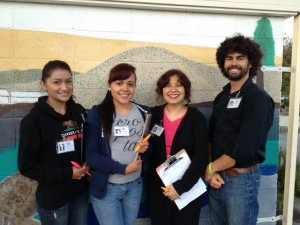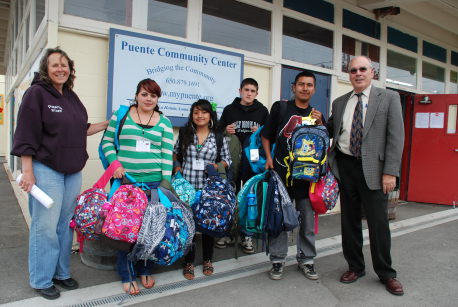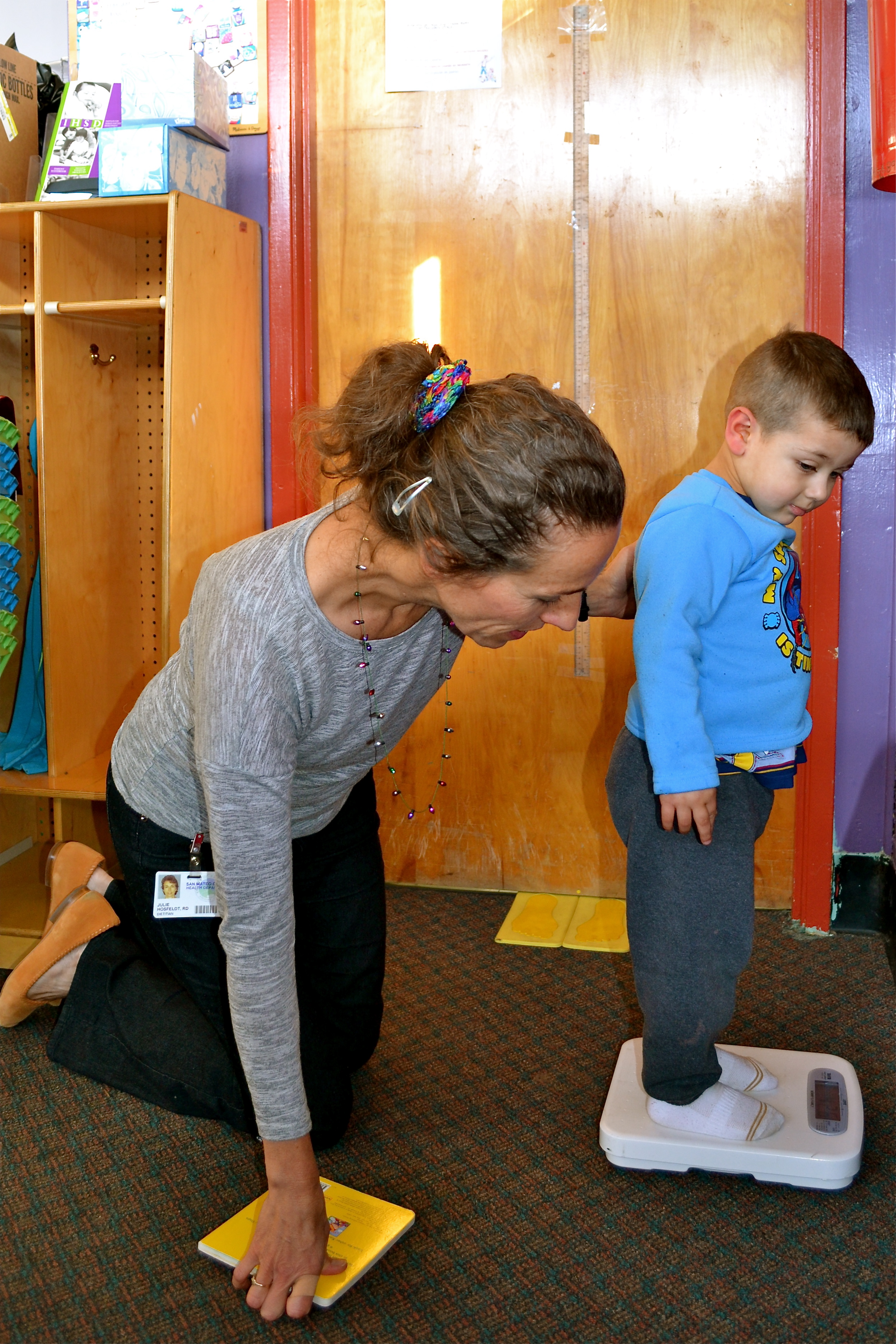A visit to the dentist is one of the best ways to prevent tooth decay, and can forestall other serious health problems down the line. But for many South Coast residents, dental care is not easily accessible.
No dental office exists anywhere near Pescadero, and many low-income residents lack both transportation to a dentist and the means to pay.
In April, however, the dentist came to them.
Puente teamed up with Sonrisas Community Dental Center of Half Moon Bay to conduct free dental screenings for 25 farm and nursery workers in Pescadero.
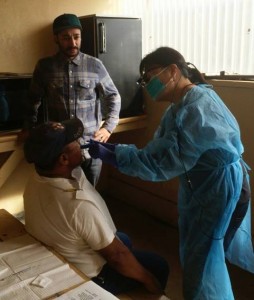
Lisa Handa brings dentistry to farms and nurseries
The screenings took place in the field – literally. One of the screenings occurred in a Brussels sprouts field where workers took a work break and sat on a folding chair while a dental hygienist peered into their mouths, snapped digital photos, and asked them some questions about their history of dental work.
The field screenings were just the first step in the pilot program, which aims to bring affordable dental care to as many people as possible on the South Coast. Sonrisas made follow-up appointments for the adults to come in for dental work, and as of May 23 out of 25 had already visited Sonrisas for their follow-ups. In six months, once they complete their treatment plan, Sonrisas will send a hygienist back down the coast for a regular check-up and cleaning. The clinic has a portable dental chair specially outfitted for the job.
The Pescadero patients only pay one-third of what dental work normally costs, says Dirk Alvarado, Executive Director of Sonrisas. If a typical cleaning and x-ray costs $160, they pay $53.
“This gives them the chance to have positive oral health. Farm workers don’t have to use all their wages. And farmers are happy because they don’t lose productivity: they’re going to be able to walk in from the field and get their cleaning, and walk out again in an hour,” says Alvarado.
Sonrisas is a nonprofit, like Puente. It was founded in 2001 to give low-income coastal San Mateo County residents access to affordable, professional dental care. The two organizations have collaborated on grant proposals in the past, and Puente has helped Sonrisas conduct dental free screenings for preschool-aged children in Pescadero. A quarter of California children between the ages of two and eleven have never been to a dentist. And many adults have no dental insurance, including many Pescadero farm workers. But avoiding the dentist can have serious effects on overall health. If you can’t chew certain foods, it can lead to malnutrition and other problems in the long run.
“A lot of times, folks are waiting for years for treatment and finally by the time they show up, they’ve been in such pain – it’s affected their work life, their home life. And we end up extracting teeth,” says Alvarado.
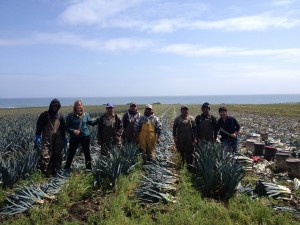
Roughly half the adults enrolled in the pilot program had never been to a dentist in their lives, according to Puente Community Outreach Coordinator Ben Ranz. It became clear that some people would need extensive dental work, or even need to have their teeth extracted, while others just had cavities to fill.
Ranz says he didn’t know how popular the screenings would be until word started spreading that a dentist was visiting farm workers. “I’m still getting calls from people who are hearing we’re involved in dentistry work and wanting to be enrolled in the program,” he says.
Puente is working to expand its dental outreach beyond preschoolers and field workers. Partnering with groups like Sonrisas, Ravenswood Family Health Center, and San Mateo County Dental Services will be key, says Puente Executive Director Kerry Lobel.
“When people think about medical care, they only think about the medical part. They don’t think about the dental part. We’re trying really hard to bring that aspect of medical care to our community as well.”


